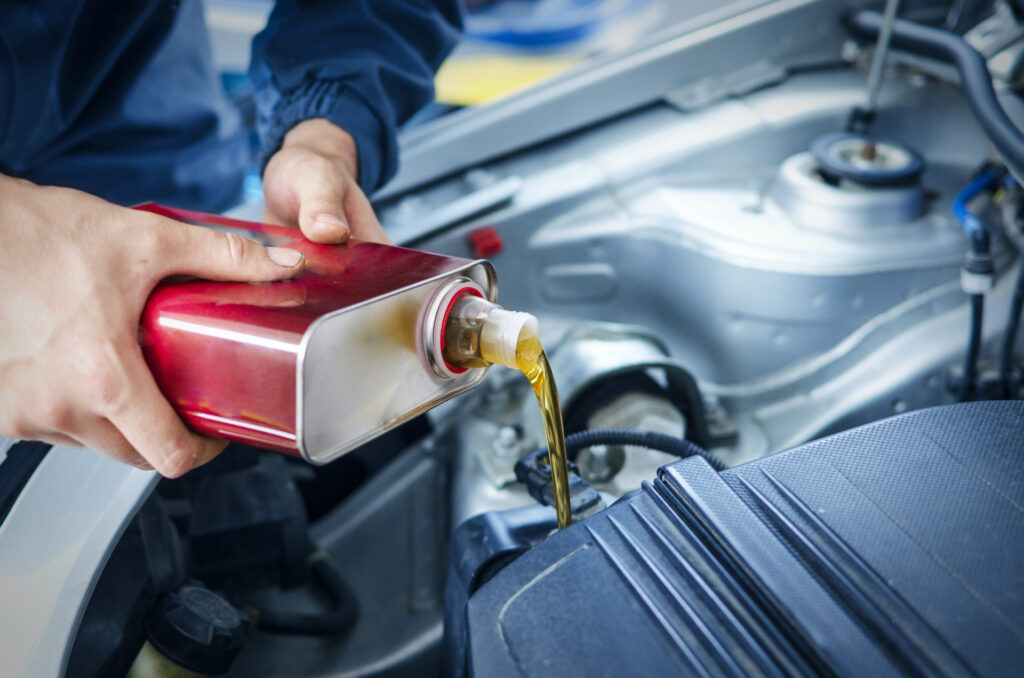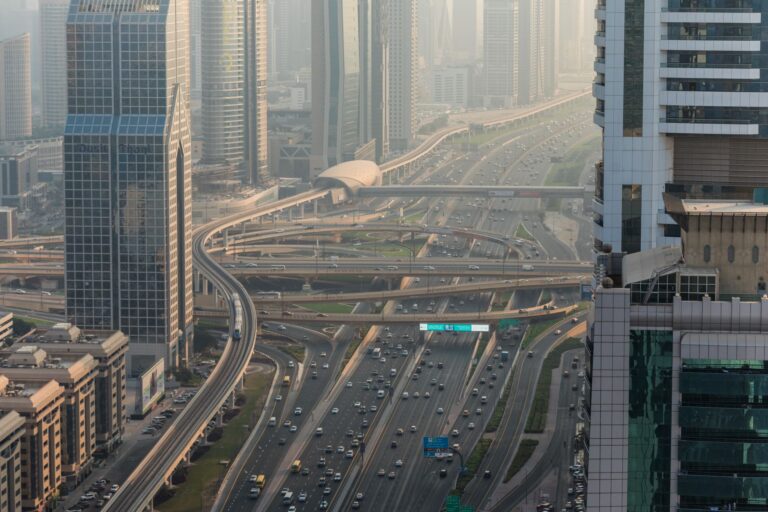Traveling by car is a great way to explore different parts of the world, but what should you do if your vehicle suddenly breaks down in a foreign country? A car breakdown abroad can be a stressful and problematic experience – not only due to the language barrier but also because of the different procedures and regulations in place in each country.
Regardless of your travel destination, you need to know what steps to take in case of a car breakdown abroad!
Car breakdown abroad – first steps
The first and most important thing to do when your car suddenly stops working is to stay calm and ensure the safety of yourself and your passengers. Here are the key steps to take immediately after the issue occurs:
1. Pull over to a safe location
If possible, move your vehicle to the side of the road, a lay-by, or a parking area to avoid obstructing traffic. If the breakdown happens on a highway and you cannot move the car, turn on the hazard lights and place a warning triangle at the appropriate distance behind the vehicle (check the local regulations – some countries require 50 meters, while others mandate up to 100 meters).
If you are driving in a country where wearing a reflective vest is mandatory, make sure to put it on before exiting the vehicle.
2. Assess the situation – can you fix the issue yourself?
Not every breakdown means the end of your trip – sometimes, the problem can be quickly resolved on the spot. Consider checking:
- Is it just a flat tire? If you have a spare wheel and know how to change it, you may be able to fix it yourself.
- Is the battery dead? If so, having jumper cables in the trunk can help you start the car with the assistance of another driver.
- Are essential fluids running low? In some cases, low oil or coolant levels can cause engine issues – if you have spare fluids in the trunk, try refilling them.
If the problem is more serious (e.g., the engine is unresponsive, the car stalls while driving, or there are strange noises coming from the drivetrain), do not attempt to continue driving. This could worsen the issue, put you at risk, and lead to higher repair costs.
3. Contact roadside assistance or your insurance provider
When dealing with a breakdown abroad, you have several options depending on the situation:
Call local roadside assistance – It’s a good idea to save the contact details of towing companies in the country you’re visiting in advance.
Contact your insurance provider – If you have roadside assistance coverage, your insurer can help arrange assistance, and in many cases, cover part of the repair costs or provide a replacement vehicle.
Ask for help at a gas station, hotel, or airport reception – If you don’t have internet access, staff at these locations can often recommend reliable local repair and towing services.
Some countries have specific roadside assistance procedures. For example, in certain places, calling for assistance on a highway must be done through official road service operators rather than private towing companies.

What to do if you have assistance insurance?
If you have assistance insurance, resolving the situation can be much easier. In this case:
- Call Your Insurance Provider
The phone numbers for assistance services are usually found in your insurance documents or on dedicated stickers inside the car.
During the call with a consultant, provide your exact location and a description of the problem – the insurer will assess which services are available under your plan.
- What services might be covered by your policy?
The coverage depends on your insurance type, but it typically includes:
▶ Towing to the nearest repair shop or back to your home country
▶ On-site repairs if possible
▶ A replacement car while yours is being repaired
▶ Hotel accommodation if the repair takes longer than expected
- Check whether your insurance covers the country you’re in
Not all assistance policies are valid worldwide. Before your trip, make sure your insurance covers the country you are traveling to. If not, consider purchasing additional coverage for countries outside your standard plan.

What if you don’t have assistance insurance?
Many travelers don’t opt for additional insurance before their trip, and standard policies may not cover breakdowns abroad. In this case, you’ll need to arrange assistance yourself.
If your car is not drivable, you must contact a local company that provides towing or repair services. The best way to find such services is through Google Maps or mobile apps. Search for phrases like:
“Roadside assistance”
“Car towing service”
“Auto repair shop near me”
Alternatively, you can use a translation tool to search for these terms in the local language.
Another option is checking local forums and community groups, especially if you want recommendations for a trustworthy mechanic.
Roadside assistance costs – how much can repairs or towing cost?
The cost of roadside assistance services varies significantly depending on the country and region. Here are some approximate price ranges:
- Car towing – In European countries, it can cost between €50 and €200, but in remote areas, the price may reach several hundred dollars.
- On-site repairs – If the issue is minor (e.g., a dead battery or a flat tire), the cost can range from €20 to €100.
- Workshop repairs – Replacing parts, diagnostics, or major repairs can cost hundreds to thousands of units in the local currency, depending on the type of damage.
If you’re traveling in a country where card payments are not widely accepted, it’s a good idea to carry some cash for emergencies.
Is renting a replacement car a good option?
If your car repair will take several days, renting a vehicle locally might be a viable alternative. Before making a decision, consider:
- Whether short-term rental is cost-effective compared to repair expenses.
- Whether you need additional insurance for the rental car.
- The location of the nearest car rental company and its rental conditions.
Car breakdown in a rental abroad – what to do?
If you are traveling in a rental car, the situation is different from having your own vehicle. In this case, your first step should be to contact the rental company, which will arrange assistance and handle the formalities.
Most car rental companies have a 24-hour helpline, which can be found in the rental agreement or on a sticker inside the vehicle.
After contacting customer service, the rental company usually arranges roadside assistance, repairs, or a replacement vehicle.
What does standard rental insurance cover?
Most basic policies cover mechanical failures that are not the driver’s fault, such as: engine malfunctions, electrical system issues, other damages not caused by the user.
However, it is worth checking the terms of the agreement – if the damage results from negligence (e.g., filling the tank with the wrong fuel), the rental company may charge the customer additional costs.
Car breakdown in Dubai – what to do?
Many tourists rent cars in Dubai, so rental companies have well-organized procedures for handling vehicle breakdowns. If your rental car breaks down in Dubai, contact the rental company. In most cases, you will receive a replacement vehicle or a repair will be arranged.
If the car is privately owned, you can contact local roadside assistance, or in case of a serious situation, you can call emergency services at 911.
It is also important to remember that Dubai has strict regulations regarding leaving a broken-down vehicle on the road. Every breakdown should be resolved as quickly as possible.
Looking for a rental car in Dubai? Use Modena Car Rental in Dubai!

How to prepare for a breakdown before your trip?
To avoid stress in the event of a breakdown, it’s worth preparing properly before traveling. First, ask yourself the following questions:
- Does my insurance cover breakdowns and towing abroad?
- Do I need to purchase an additional assistance package?
- Do I have the phone numbers of my insurer and local roadside assistance services?
Next, prepare a list of essential items to have with you during your trip:
✔ Jumper cables and a power bank for your phone
✔ Spare coolant and engine oil
✔ First aid kit and flashlight for emergency situations
✔ A translation app with basic phrases related to car breakdowns in the local language
During your preparations, you should also familiarize yourself with the regulations in the destination country, checking whether local laws require you to use specific roadside assistance services, whether certain safety equipment is mandatory in the vehicle, and whether you are allowed to leave your car on the roadside in case of a breakdown.
Car breakdown abroad – summary
A car breakdown abroad can be a major issue, but proper preparation can make it easier to handle. The most important things are to stay calm and prioritize your safety.
Contact your insurer if you have assistance coverage or call roadside services if needed.
Prepare in advance to minimize potential problems during your journey.




